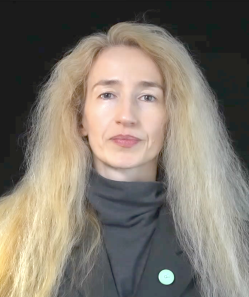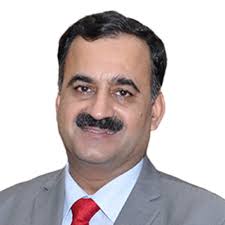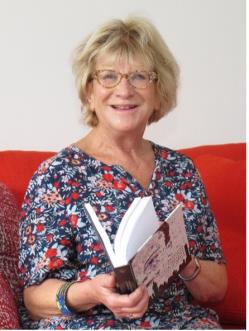New Normal: are we ready for it?
EC MEDICI Framework
Session 238
Mid-and Long- term impact of ICTs on society: an interdisciplinary analysis
Preamble: It is not under question the added value and the achievements due to digital technology; the aim of this session is to carefully consider potential risks and drawbacks to minimize or counterbalance them.
Digital transformation is reshaping society impacting lifestyles. Are we facing a significant turning point toward a “New normal”? We are increasing leaving the analog, face to face, paper-based world to enter the intangible digital mediated one. The panel analyses the present, mid-, and long-term impacts of this transformation. The pandemic accelerated this process pushing citizens go digital, sometimes forgetting some wise principles. The result is a cyber-based society relaying on “digital”, this pillar is quite fragile, potentially subject to attacks and suitable for top-down discrimination. In the “analogue” world we had different pipelines and “channels” to carry out our activities, thanks to different tools and means, in the cyber world the entire activity depends on a single “bottleneck”: cyber technology. If this pillar fails, does not work properly, or is turned off, our life will have to face problems that are sometimes unpredictable. Without cyber tech we will lose our digital identity, bank account, social security, service provision, news, and much more. Consequently, the more we digitise, the more the attack surface expands, the more vulnerable we will be to hackers and hybrid threats.
The economic model carried out in the recent past shows its limits as does globalisation that was its side effect. Nowadays we increasingly consider de-globalisation as a scenario and the rediscovery of local “values” and “identities”.
A significant part of digital transformation relies on platforms and standards and related “owners”. In the digital transition, despite antitrust laws, there is a potential risk of falling under the control of few key players creating a kind of “oligarchy”.
The Internet distributes all-over the world “homogenised” content that can jeopardise cultural identities. Citizens increasingly live in cyber-bubbles, have cyber-mediated human relations, they experience the world thanks to cyber devices mediated approach, and can be biased by mainstream on opinion dynamics and by nudging.
It is true that platforms open the "global" market to small and micro businesses by offering them a "window" on the globe, but it is equally true that access to global service platforms creates a shortcut between supply and demand shortening the traditional added value chain. This may cause serious troubles in case of unavailability of access to the platforms either due to malfunctions, hackers’ attacks or in the event of a top-down decision to selectively deactivate the service. A plan B in such a situation, if not present, will require long time to implement.
We usually view “security” as an integral part of our lives, seemingly something cost-free, without needing to invest or worry about it. This seems to be true until we face small or large problems. Then we start to worry about security, it is no longer a zero-cost "commodity", we need invest some resources to reach a certain level of "insecurity". The concept of “security” it is not an absolute and permanent status, but we can identify it as a “dynamic balance”. We draw attention to the dual nature of “cyber” which many times contributes to improving resilience but due to its pervasive attitude it can be the target of attacks and generate the "perfect storm".
We are surrounded by “critical infrastructures” managed by cyber components which, in the event of attacks, can create greater or lesser impacts on our daily lives. We don’t just mean the typical critical infrastructures like communication, energy, water, health, transportation, and last but not less important nowadays, financial services. Thanks to the appreciation of citizens and their role as everyday “tools” we consider information services, social media, geo-positioning, home automation, smart cities, safety, and security devices, and more. It will not be surprising if in a few years key service platforms as GAFAM will be considered critical infrastructures.
The pervasiveness of cyber technology, the internet and the quick deployment of emerging number crunching applications is emphasizing energy consumption, at the same time the rapid pace of innovation in the field of consumers’ devices produces significant amount of waste to be recycled or disposed. Consequently, can cyber technology be considered green and resilient?
Since more than two decades we have been wrapped in our personal cyber-sphere in a kind of symbiotic relation. Citizens experience the world thanks to an approach mediated by cyber devices; the “new reality” is the one provided by devices. Metaverse and virtual reality are inter-twined, but they are not the same thing. So far, digital technology has mainly acted as a human isolation technology, computer mediated human relations or even a “loneliness relation” with your terminal, a smart phone, gaming console or laptop.
According to the current perspective the Metaverse will progressively create a clone of our environment, but it will not limit itself to this goal, creativity will extend this limitless universe beyond the imagination. Cyber-loneliness, one of the foreseeable risks, is a sort of addiction to this “parallel life” that trains users to shift from Real- to Meta-life blurring the boundary between them, this can happen as much as the number of services and duties will be “moved” on the other side of the Alice’s mirror. Meta-life may propose a new normal that once accepted in the Meta-life could be accepted in the real life (e.g. restriction of human rights).
Will genetic engineering and nanotechnology allow us to escape human limitations, will general artificial intelligence design improve itself to overcame human intelligence? While AI will benefit citizens, businesses, and public interests it will create risks to fundamental rights, potentially liberating humans’ beings from ethical dilemmas. AI should be as neutral as possible to cover techniques that are not yet known/developed.
The new ethics calls into question personal free will and freedom of choice; traditional cultural regulators of social relationships and processes are being replaced by automated social algorithms (growing role of algorithms and ML). The extensive use of artificial intelligence, machine learning and big data, in addition to various ethical issues, can led to some significant drawbacks. We feed ML systems mainly with big data from Western countries, sometimes both due to the opacity of the algorithms and the inability to predict the “patterns” identified by the system we receive risky or not useful outputs. Citizens are increasingly using AI “bots” to carry out different activities ranging from writing a poem to creating a deep fake. How can we identify a human “product” from a machine product? Lawyers are already animating the debate together with other interested parties (e.g. IPR issues).
If on the one hand the entire architecture is based on cyber technology, with all the potential risks it entails on the other hand the “rules” of the cyber-world have can express a power that none of the “rules” of history have never had. Information and big data are the assets to be analysed, influenced, reused.
Furthermore, time ago we started discussing about the Global Digital Compact, this was one of the key topics of the WSIS Forum 2023 together with AI tools and their developments. The aim of the debate is to outline a shared vision on digital cooperation providing an inclusive global framework for a sustainable digital future.
The challenges for the upcoming years are the ways to sustain the human’s role and the inviolable right to freedom and personal privacy in an era of unlimited collection of information. Once again, the need to find a proper balance between humanities and technologies is omnipresent. Social sciences and humanities must establish a tight cooperation in the design or co-creation of cyber technologies always keeping humans in the focus.

Alfredo M. Ronchi - professor at Politecnico di Milano (Engineering Faculty), Expert/advisor in e-Services, Head of the JRC S2D2 (Safety, Security, Defence, Disaster Recovery and Management), Secretary of the EC-MEDICI Framework of Cooperation, delegate at UNESCO IFAP and active member of the WSIS since the establishment (2003-/).
Author/contributor of more than 400 papers and various books on: e-Culture, e-Government, e-Safety & Security, and e-Services.

Karamjit S. Gill is Professor Emeritus, University of Brighton (UK), Founding Editor of AI&Society journal (Springer), Visiting Professor at the universities of Wales (UK), Urbino (Italy), Waterford Institute of Technology (Ireland), Beijing Academy of Soft Technology (China), and Symbiotic Network IIT Mumbai, Delhi University, Arizona State University and UCLA (USA), Universities at Rio de Janeiro (Brazil), Cybernetics Network Santiago (Chile) and ATA Lima (Peru), Karamjit is the Founding Chair of the International INSYTE-CRI laboratory at Waterford Institute of Technology, Republic of Ireland, and is a member of the Advisory Panel of the Artificial Intelligence for Societal Good challenge of Science Foundation Ireland (SFI). He is High Level member of the World Summit on the Information Society (WSIS) Forum 2023. Over the years he has directed cross-cultural research networks, including EU-India cross-cultural innovation network (EU); Europe-Japan network on human-centred systems; European postgraduate and doctoral research network in human centred systems (EU), Knowledge, culture and artificial intelligence network (EU); New Technology and Adult Literacy (EU); Computer Aided Animated Arts Theatre (CAAAT) Project and the Europe-Japan human centred systems (NTT Data, Japan-1990s); Culture, Language and Artificial Intelligence (COST-EC/Sweden). He has been the founding Series Editor of the Human Centred Systems Society Book Series (Springer) He is also actively involved in the Community-University Partnership in social mentoring encompassing art, music and craft therapeutic environment and coproduction. At Cambridge, he is involved with the Interdisciplinary Performance Research Network, AI Community, and Cambridge Community Arts. At the European level, he is collaborating with PROMISE.eu, a European enterprise.Karamjit is a keynote member of the WSIS Forum 2023.

Executive Director of Globethics, international organization, which head office is in Geneva, Switzerland, working for ethical leadership through higher education and global engagement. Prof. Fadi Daou is Laureate of the Elevate Prize 2020 for Global thinkers and change-makers. Daou is a Policy advisor and Professor in geopolitics of religions, inclusive development, and peace. Having lead pioneer projects for countering online extremism, he now leads the engagement of Globethics in ethics of AI and emerging technologies, with the recent publication: Inclusive AI for a better future.
https://www.linkedin.com/in/fadidaou/
https://twitter.com/fdaoulb

Dr. Lynn Thiesmeyer specializes in Asian sustainable development with a focus on Upper Mekong regional and rural development, including environmental and climate change migration and slow-onset disasters. She is Professor Emerita and Adjunct Professor of Environmental Information at Keio University, Japan’s oldest academic university, where she has been a professor since 1995. She has worked as an advisor and co-researcher with APEC (the Asia-Pacific Economic Commission), with the United Nations Development Program, UNESCO, the World Bank Gateway for Gender and Development, and the MEDICI Framework of the European Commission, and she was a Research Advisor to the Mekong Institute of Thailand. She has also been a lecturer for the United Nations Global Seminars in Japan and at the Graduate Program of Health Social Sciences of Mahidol University of Thailand. Her publications include Human Insecurity in East Asia (co-edited, 2009), Informal and Illegal Movement in the Upper Greater Mekong Subregion (2010), articles on environmental policy in ASEAN, and book chapters on security, spatial politics, and socio-economic and ecological impacts of development projects in rural areas of the Upper Mekong. In 2017 she received the Keio University Award for Career Research Achievement on Socio-economic impacts of Regional Development Projects in Southeast Asia.

Alève Mine is the first advisor on risk recursion, the risk arrow and the Resilience-to-Robustness Equilibrium (RRE). She holds a MSc degree from the EPFL in micro-engineering (robotics, automation, nanotechnology, chips, sensors, materials, lasers, signal processing, production lines, etc.), a finance diploma (financial analysis, valuation) from the St. Gallen Management Institut (SGMI), and was 2011 laureate in media technology and telecommunications at the International Telecommunications Union (ITU-T). In 2015, she founded the Zurich AR/VR Meetup (keyword "the metaverse”) which was named Key Swiss Player in the field on the GDI Gottlieb Duttweiler Institut map (2017). She is author the RRE White Paper (2024) and of three books -- The Margin Problem (forthcoming in 2024), Storytelling Automation Principles (2021), and the science fiction novel The Premise (2012) under the pen name Solomon Batelberg.

While a practicing Advocate, Supreme Court of India, Dr. Pavan Duggal has made an immense impact with an international reputation as an Expert and Authority on Cyber Law, Cyber Security Law, Artificial Intelligence Law & E-commerce law.
Dr. Duggal has been acknowledged as one of the top 4 Cyber Lawyers around the world.
WDD [World Domain Day] recognizes him as one of the top 10 Cyber Lawyers around the world.
Dr. Pavan Duggal, is the Founder & Chairman of International Commission on Cyber Security Law. He is also the President of Cyberlaws.Net and has been working in the pioneering area of Cyber Law, Cyber Security Law & Mobile Law.
Pavan is also heading the Artificial Intelligence Law Hub and Blockchain Law Epicentre. He is the Founder-cum-Honorary Chancellor of Cyberlaw University.
Dr. Pavan Duggal is also the Conference Director of the International Conference on Cyberlaw, Cybercrime & Cybersecurity, being world's only authoritative Conference on Cyberlaw, Cybercrime & Cybersecurity. In addition, Dr. Duggal has also conducted various Round Tables on Cyberlaw, Cybercrime & Cybersecurity over the last couple of years. He has also organized various Thematic Workshops at the previously held ITU WSIS Forums.
His empanelment as a consultant to UNCTAD and UNESCAP on Cyber Law and Cyber Crime respectively, membership of the AFACT Legal Working Group of the UN / CEFAT, consulting as an expert with the Council Of Europe on Cyber Crime, inclusion in the Board of Experts of European Commission’s Dr. E-commerce and his work as an expert authority on a Cyber Law primer for E-ASEAN Task Force and as a reviewer for Asian Development Bank speaks volumes of his worldwide acceptance as an authority. Pavan is the President of Cyberlaw Asia, Asia’s pioneering organization committed to the passing of dynamic cyber laws in the Asian continent. Dr Duggal is also a member of the WIPO Arbitration and Mediation Center Panel of Neutrals.

Dr. Jandhyala Prabhakar Rao, Professor of Linguistics in the University of Hyderabad, is a Member (India) of the UNESCO-Information for All Programme (IFAP) Bureau (2022-24) and Chair, Working Group on Information for Development, UNESCO-IFAP (2023-24). His innovative activities and initiatives in the IFAP Priority Areas, such as Multilingualism, Information for Development, Information Ethics, Information Literacy and more., enabled him to build strong national and international networks. He is founder-convener of Consortium on Global AI Ethics for Social Good (GAIE4SG), and initiated the creation of two Consortia on Ethics for Public Policies on Artificial Intelligence for Latin American and the Caribbean (EticALIA) and South and South East Asia AI Research Forum for Holistic Development (S&SEAAIRF4HD). These initiatives are aimed at strengthening IFAP across the globe and support achievement of the SDGs 2030. He is an advocate for building local AI solutions, promoting Digital Well-being, preserving multilingualism using digital technologies in sync with the indigenous people, cultures and knowledges. His familiarity with multi-disciplinary topics and multi-cultural environments is a linked to being a coordinator of several national and international projects. He has presented and published several research papers on these themes and serves as an editorial boards member of many Journals and academic committees across the globe. A regular speaker in academic settings, he has also established MoUs with many universities and institutions across the world. In addition to his international and academic work his strong links with private sector means he also has roles as a member of Executive Committees of some of India's premier industrial organisations.

Founder & President, Global Forum/Shaping the Future ,
French.
• President & Founder of the Global Forum / Shaping the Future
The Global Forum/ Shaping the Future is an independent and non-profit association created 30 years ago and taking place in time in a different country. It brings together experts and organizations around the world sharing a common agenda in the field of digital development
This Think tank is a neutral, high profile, thought-provoking, international and self-sustained event dedicated to business, policy and strategy issues affecting the Digital Society
• Partner & founder of ITEMS International - a company
specialized on strategic Digital consulting.
• More than 25 years of experience in communication, IT,
consultancy and project management, with an international
network of expertise in Digital Government, Smart Cities and
smart information.
• As Professor at Paris University, cofounder of the Institute of
European studies, Paris 8 University, France.
• Founder of ENSA “European Education New Society Association”
- an association on the future of education and ICT.
• Trained as an economist with a Doctorate in Economics from the
University of Paris I Pantheon Sorbonne, France, Dr. Sylviane Toporkoff is the author of several books and a frequent speaker at international conferences.
• “Chevalier of the Legion of Honor” and medal of “Arts, Sciences and Letters"
-
 C1. The role of governments and all stakeholders in the promotion of ICTs for development
C1. The role of governments and all stakeholders in the promotion of ICTs for development
-
 C3. Access to information and knowledge
C3. Access to information and knowledge
-
 C4. Capacity building
C4. Capacity building
-
 C5. Building confidence and security in use of ICTs
C5. Building confidence and security in use of ICTs
-
 C7. ICT applications: benefits in all aspects of life — E-government
C7. ICT applications: benefits in all aspects of life — E-government
-
 C8. Cultural diversity and identity, linguistic diversity and local content
C8. Cultural diversity and identity, linguistic diversity and local content
-
 C9. Media
C9. Media
-
 C10. Ethical dimensions of the Information Society
C10. Ethical dimensions of the Information Society
-
 Goal 4: Ensure inclusive and equitable quality education and promote lifelong learning opportunities for all
Goal 4: Ensure inclusive and equitable quality education and promote lifelong learning opportunities for all
-
 Goal 8: Promote inclusive and sustainable economic growth, employment and decent work for all
Goal 8: Promote inclusive and sustainable economic growth, employment and decent work for all
-
 Goal 9: Build resilient infrastructure, promote sustainable industrialization and foster innovation
Goal 9: Build resilient infrastructure, promote sustainable industrialization and foster innovation
-
 Goal 10: Reduce inequality within and among countries
Goal 10: Reduce inequality within and among countries
-
 Goal 11: Make cities inclusive, safe, resilient and sustainable
Goal 11: Make cities inclusive, safe, resilient and sustainable
-
 Goal 16: Promote just, peaceful and inclusive societies
Goal 16: Promote just, peaceful and inclusive societies
https://cmd-journal.hse.ru/article/view/20977